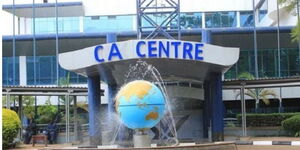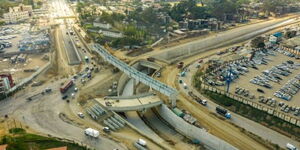Fuel prices for super petrol, diesel, and kerosene are set for a massive increase after the Energy and Petroluem Authority (EPRA) announced the latest prices.
In the latest review, EPRA revealed that the prices for Super Petrol, Diesel, and Kerosene increased by Ksh8.99, Ksh8.67, and Ksh9.65 per litre, respectively.
As such, super petrol will retail for Ksh186.31, diesel will retail at Ksh171.58, and kerosene will retail at Ksh156.58 in Nairobi.
EPRA noted that the calculated maximum retail prices of petroleum products will be in force from Monday, July 15, to Thursday, August 14.
"Per Section 101(y) of the Petroleum Act 2019 and Legal Notice No.192 of 2022, we have calculated the maximum retail prices of petroleum products which will be in force from June 15 to July 14," the statement read in part.
"The prices are inclusive of the 16% Value Added Tax (VAT) in line with the provisions of the Finance Act 2023, the Tax Laws (Amendment) Act 2024, and the revised rates for excise duty adjusted for inflation as per Legal Notice No. 194 of 2020," it added.
In Mombasa, super petrol, diesel, and kerosene will all retail at Ksh183.02, Ksh168.30 and Ksh153.29 per litre, respectively. In the lakeside region of Kisumu, the prices of super petrol, diesel and kerosene were set at Ksh186.15, Ksh171.78 and Ksh156.83 per litre, respectively.
Super petrol in Nakuru will retail at Ksh185.33 per litre. Meanwhile, diesel and kerosene will retail at Ksh170.97 and Ksh156.01 per litre, respectively. In Eldoret, super petrol, diesel and kerosene will retail at Ksh186.15, Ksh171.80 and Ksh156.83 per litre, respectively.
According to EPRA, the average landed cost of imported super petrol increased by 6.45 per cent from US$590.24 (Ksh76,436) per cubic metre in May 2025 to US$628.30 (Ksh81,169) in June 2025.
In addition, diesel increased by 6.27 per cent from US$580.23 (Ksh74,959) per cubic meter to US$616.59 (Ksh79,848). Kerosene also saw an increase of 6.95 per cent from US$569 (Ksh73,685) per cubic meter to US$608.54 (Ksh78,616).
This might explain the drastic increase in the prices, which might catch many Kenyans by surprise. In previous fuel reviews, EPRA had been reducing fuel prices albeit at a low rate. Few instances of fuel price increase were in small margins.
Even so, EPRA explained that the price of petroleum products was based on global market trends, as Kenya does not produce or refine its petroleum; it imports already processed fuel from other countries.












